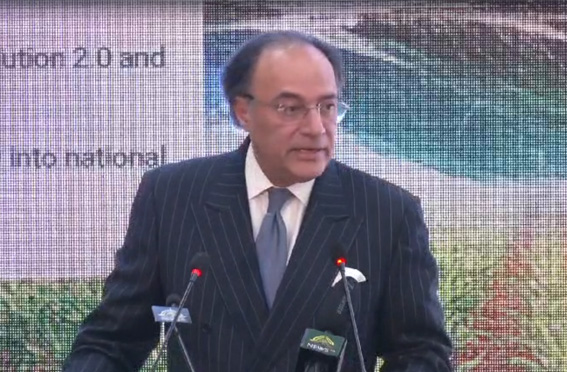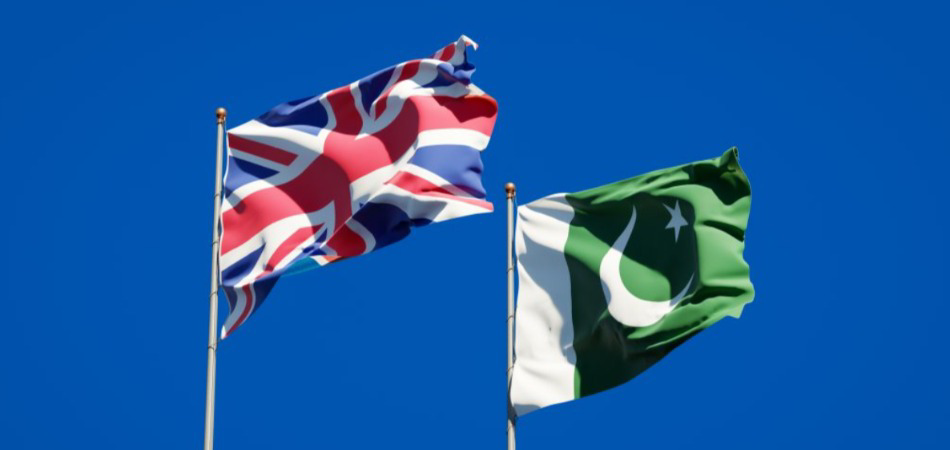Pakistan must shift to export-led growth for stability: FM

MG News | January 06, 2025 at 11:46 AM GMT+05:00
January 06, 2024 (MLN): Pakistan requires structural reforms to achieve sustainable growth, transitioning from an import-led to an export-led model, while fostering inclusive growth to ensure long-term stability.
This was stated by Federal Minister for Finance and Revenue, Senator Muhammad Aurangzeb while addressing the ceremony of "Uraan Pakistan, the 5Es Homegrown Economic Plan 2024-29".
He emphasized that macroeconomic stability is not an end in itself but a means to achieve long-term growth.
Reflecting on past challenges, he pointed out that attempts to stimulate growth 3 years ago, fueled by liquidity, led to economic imbalances due to Pakistan’s import-dependent economy.
"Whenever growth exceeds 4%, we encounter a balance of payment problems and return to external institutions for assistance. This needs to change," the minister remarked.
As part of the Homegrown Economic Plan, the minister outlined three key agendas to achieve these goals, Muhammad Aurangzeb noted.
The first agenda focuses on stimulating private investment, deemed essential for creating jobs, increasing incomes, and lowering the cost of living through a more competitive economy.
The minister stressed the need to reduce regulatory costs and tax burdens to align with global best practices.
Key initiatives include fostering a competitive market to attract private sector investment, prioritizing efficient foreign direct investment (FDI), and transforming the Federal Board of Revenue (FBR).
Additionally, the plan seeks to provide reliable energy through market-based reforms and leverage the SIFC’s relocation of export-oriented industries from China and other locations.
The second agenda aims to stimulate exports by reducing tariffs and customs duties on export inputs, he further said.
The goal is to bring the average tariff down from 19.5% to 14.3% over the next three years, with support from the Ministry of Commerce.
Complementary efforts include expanding and diversifying exports, promoting export-friendly trade agreements, and addressing indirect taxation distortions.
Enhanced access to trade credits is also a critical component of this strategy, the Federal Minister for Finance and Revenue further said.
The third agenda focuses on optimizing public finances by bringing public debt deficits under control.
A separate tax policy unit, currently under development, will independently report to the Ministry of Finance to streamline tax policies and enhance fiscal efficiency.
The minister emphasized two guiding principles for Pakistan’s economic transformation. The first is export-led growth, driven by productivity and competitiveness on the global stage.
The second is empowering the private sector to lead the economy, with the government’s role limited to providing a stable policy framework and ensuring continuity.
Pakistan has seen significant economic improvements, marking the first fiscal year in 24 years with both fiscal and current account surpluses, the Federal Minister added.
Foreign exchange reserves have risen, backed by a 35% increase in remittances and strong IT exports.
Headline inflation has dropped from the peak of 38% down to 4.1%, prompting the State Bank to cut the policy rate by 900 basis points to 13%, he further said.
With a surge in investor confidence, Pakistan's stock market has reached an all-time high, making it the second-best performer globally.
Foreign direct investment (FDI) has risen by 31%, with major investments from BYD, Aramco, and Engro, signaling a promising economic outlook.
Copyright Mettis Link News
Related News
| Name | Price/Vol | %Chg/NChg |
|---|---|---|
| KSE100 | 135,939.87 307.74M |
-0.41% -562.67 |
| ALLSHR | 84,600.38 877.08M |
-0.56% -479.52 |
| KSE30 | 41,373.68 101.15M |
-0.43% -178.94 |
| KMI30 | 191,069.98 82.45M |
-1.17% -2260.79 |
| KMIALLSHR | 55,738.07 422.01M |
-1.03% -577.24 |
| BKTi | 38,489.75 45.79M |
-0.02% -8.33 |
| OGTi | 27,788.15 6.87M |
-1.24% -350.24 |
| Symbol | Bid/Ask | High/Low |
|---|
| Name | Last | High/Low | Chg/%Chg |
|---|---|---|---|
| BITCOIN FUTURES | 116,995.00 | 120,695.00 116,090.00 |
-3240.00 -2.69% |
| BRENT CRUDE | 68.78 | 69.41 68.60 |
-0.43 -0.62% |
| RICHARDS BAY COAL MONTHLY | 96.50 | 96.50 96.50 |
0.50 0.52% |
| ROTTERDAM COAL MONTHLY | 104.50 | 104.50 104.25 |
-2.05 -1.92% |
| USD RBD PALM OLEIN | 998.50 | 998.50 998.50 |
0.00 0.00% |
| CRUDE OIL - WTI | 66.62 | 67.13 66.22 |
-0.36 -0.54% |
| SUGAR #11 WORLD | 16.56 | 16.61 16.25 |
0.26 1.60% |
Chart of the Day
Latest News
Top 5 things to watch in this week
Pakistan Stock Movers
| Name | Last | Chg/%Chg |
|---|
| Name | Last | Chg/%Chg |
|---|



